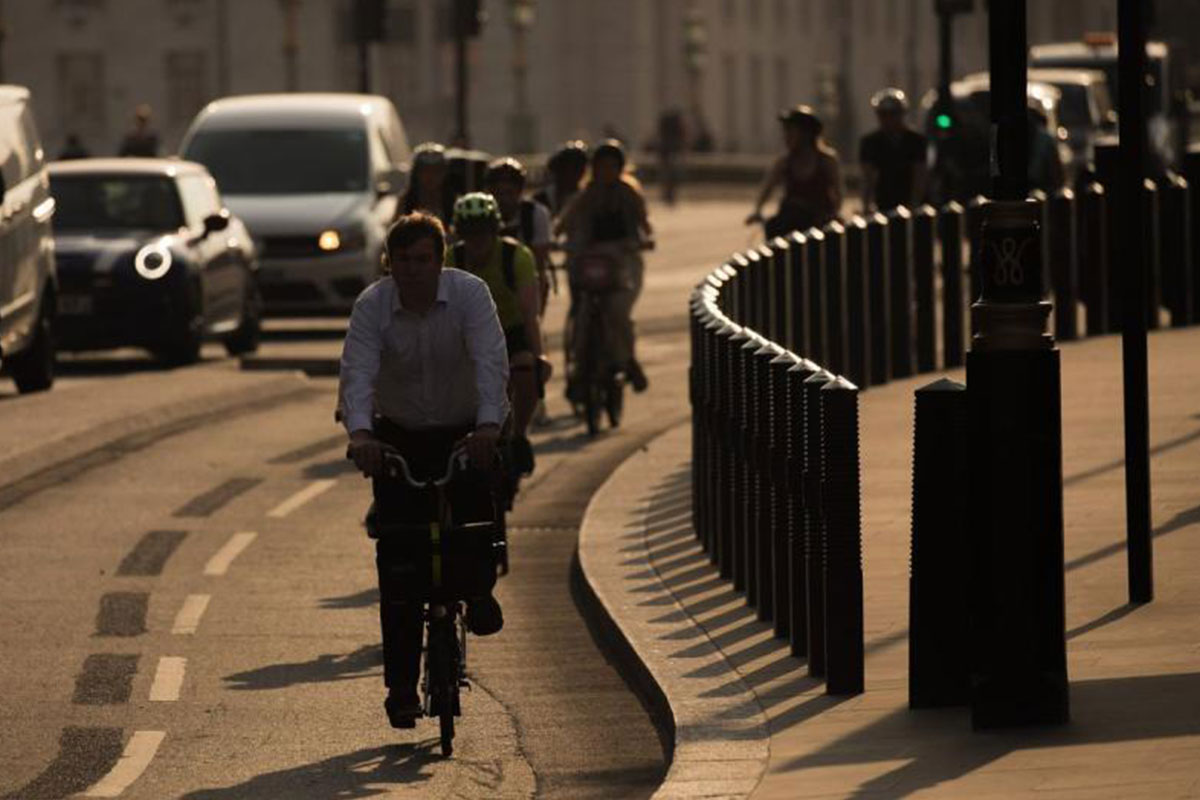Small changes in citizens’ transport habits can significantly cut their carbon footprint, according to an in-depth study of commuting data from more than 3,800 people across seven cities.
Choosing a bike over a car just once a day reduces an average citizen’s carbon emissions from transport by 67%, according to research led by University of Oxford transport professor Christian Brand. The findings mean that even if not all car trips could be substituted by bicycle trips, the potential for decreasing emissions is still very high.
While public policy tends to focus on commuting, the paper found that trips for recreational purposes like shopping or social visits are more often done by car. These trips tend to be significantly shorter, increasing the potential for a shift toward walking or cycling, according to researchers.
Green Commute
Replacing car trips with cycling significantly cuts emissions
If 10% of the population were to replace one car trip each day with a bike trip, overall transport emissions would be expected to decrease by about 10%, according to the study. If the same percentage of the population replaced one car trip with one trip by public transport, individual transport emissions would be 19% lower.
The paper represents one of the few comprehensive conclusions on the climate impact of transport choices across latitudes. Over two years, researchers tracked the habits of thousands of individuals in Antwerp, Barcelona, London, Rome, Vienna, Zurich, and Orebro in Sweden. In total, participants completed almost 10,000 detailed one-day travel diaries, with over 34,200 trips logged in total.
While some results varied across cities due to differences in climate, geography, urbanization level, and income, other data were consistent across the board. Emissions from cars were more than double those from public transport, and cycling was responsible for less than 5% of public transport emissions overall. While cycling doesn’t emit greenhouse gases, researchers considered cycling emissions those from manufacturing and disposing bikes and dietary changes on the part of cyclists as a result of more physical activity.


